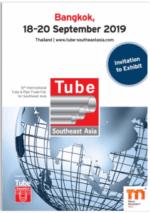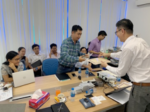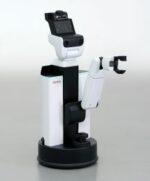Australia’s first electric motorbike launched in Adelaide
The Fonzarelli NKD electric motorbike and its charging stations will be manufactured in Adelaide, South Australia. Michelle Nazzari and Simon Modra met at a wedding several years ago in Sydney and spent the evening engrossed in conversation about motorbikes. The pair of entrepreneurs stayed in touch as each went their separate ways, Simon back to Adelaide and various startups in the sustainability sector, and Michelle into her own electric vehicle company called Fonzarelli. “I had been working in automotive manufacturing with electric and hybrid buses,” said Nazzari. “That’s where it all started, but I looked at the powertrain and it’s very simple and thought, ‘yeah, I might give this a go,’ and so set up the company and started tinkering.” Nazzari launched her first electric scooter in 2012-13 under the brand Fonzarelli and has grown the business from there. Always with the push to increase mileage and with a dedication to motorcycles still in her heart, Nazzari reconnected with Modra to tackle the issue of charging stations for her NKD electric motorbike. The electric dual-sport mini motorcycle has a range of up to 120kms and can produce 6000 RPM and a top speed of 100 km/h. Modra, who is also an architect and Future Submarine design researcher at the University of South Australia, jumped at the chance to collaborate with Nazzari on the NKD project and convinced her to manufacture the charging stations and bike in South Australia. “It’s a legitimate form of transport – there are many motorcyclists out there who don’t have a car and we’re lucky battery power has become so reliable now and Peter [Coombs – Chapter president of Design Institute of Australia] did give the hat-tip to Tesla,” Modra said. “Now we’ve got this incredible range with the vehicle and we’re getting further and further out.” […]










